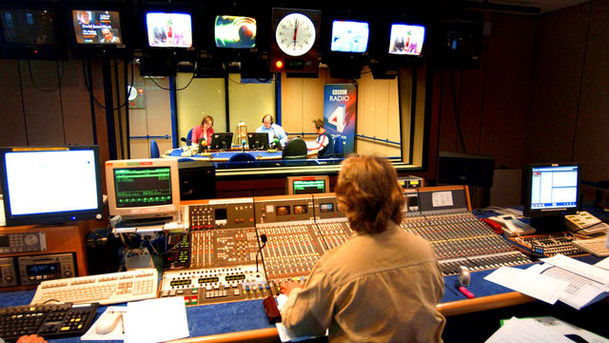Today - 05/12/2009

Presented by John Humphrys and James Naughtie. American student Amanda Knox and her former boyfriend, Raffaele Sollecito, have been found guilty of murdering British student Meredith Kercher in a drunken sex game two years ago. Ms Knox has been sentenced to 26 years in prison and Mr Sollecito to 25 years in prison. Correspondent Dominic Hughes reports from Perugia. Conservative leader David Cameron is in Afghanistan to meet British troops. He has promised to double the allowance paid to soldiers returning from the combat and pledged to set up a war cabinet and appoint a national security advisor, if he wins the next election. Political editor Nick Robinson analyses Mr Cameron's defence policies. The inquiry into the 2003 Iraq invasion has been hearing from leading public figures for a fortnight. Many revelations have come to light, including the influence of the Blair-Bush bond. Correspondent Peter Hunt reflects on the week's events. A High Court judge has ruled that the South African Zulu tradition of bull slaying can continue, despite attempts by animal rights activists to ban it. The killing is a symbol of gratitude for the harvest. Correspondent Karen Allen reports from Johannesburg. Steelmaker Corus has confirmed it will cut production at its Teesside factory, putting 1,700 people out of work. The company said it has struggled to find new orders for the site in Redcar since an Italian-led consortium pulled out of a deal to for the supply of its products earlier this year. Peter Rogan, engineering team leader at the Lackenby site in Redcar, discusses the job losses. The United Nations has adopted a Bob Dylan song as its unofficial anthem for the climate change summit in Copenhagen. Correspondent Barbara Plett reports on the preparations for the summit. The British Trust for Ornithology is celebrating 100 years of 'ringing' at their annual conference today. Ringing birds with small tags and has provided almost all the existing data on migration patters, and has ranged from the use of metal to sophisticated satellite tags. Dr Phil Atkinson, head of international research at the British Trust for Ornithology, discusses the historical importance of ringing. Thought for the Day with Rev Rob Marshall, an Anglican priest. President Obama announced his long-awaited Afghan policy earlier this week. 30,000 troops are to be sent to the region over the next six months, with an exit strategy planned to commence in 2010. Professor Akbar Ahmed, former Pakistan high commissioner in London and currently the chairman of Islamic Studies at American University in Washington DC, discusses the implications of the speech and strategy for Pakistan. Conservative leader David Cameron has promised to maintain a long-term commitment to Afghanistan if he wins the next general election. On a visit to the country, he pledged to double the allowance paid to soldiers returning from the region and to set up a war cabinet. Mr Cameron discusses his Afghan policies. An Italian court has convicted American student Amanda Knox and her former boyfriend of murdering British student Meredith Kercher. The case has taken two years to complete and gripped the world. American journalist Andrea Vogt, who has been following the case, reacts to the sentence. Do you prefer to write with a keyboard or pen? A typewriter belonging to American novelist Cormac McCarthy has sold for 150,000 pounds at an auction in New York. The old light blue Olivetti machine was used by the novelist for 50 years, and has shocked some writers who use a computer to work. Crime writer Ian Rankin, who uses a computer, and author Philip Henshaw, who writes his works with a green pen, discuss writers' implement of choice. How do you balance scientific facts with public policy? Scientists are faced with pressure to present evidence on issues of public policy and to lobby for a particular outcome. Leaked emails from the University of East Anglia which imply that climate change data was manipulated have demonstrated the clash between politics and science. Correspondent Tom Feilden reports on the latest 'emailgate' developments, and Professor Malcolm Grant, President and Provost of UCL, discusses how far politics should rely on science. UN peacekeepers have been in Haiti for more than five years to restore order. Many are wondering why they have remained in the country, which has seen a huge drop in the number of murders, rapes and kidnappings. US authorities have scaled down travel warnings for the country and former president Bill Clinton has been calling on richer nations to invest there. But, with legislative elections due next year, tensions remain high and there are fears that the current situation could be the calm before the storm. In the last of three reports, correspondent Mike Thomson examines Haiti's political climate. Royal Bank of Scotland's decision to pay out huge bonuses has come under criticism from the Treasury and the public, who want